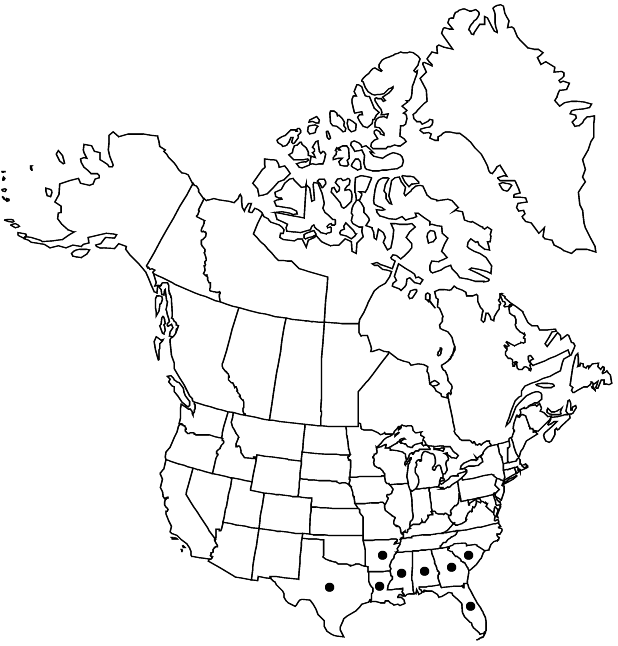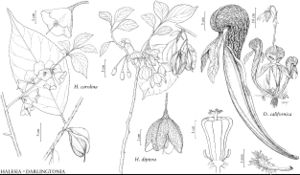Difference between revisions of "Halesia diptera"
Philos. Trans. 51: 931. 1761 ,.
FNA>Volume Importer |
FNA>Volume Importer |
(No difference)
| |
Revision as of 20:30, 24 September 2019
Shrubs or trees to 11 m. Leaves: petiole 15–35 mm; blade bright or pale green abaxially, ovate, elliptic, or obovate, 8.1–17 × 5.5–12 cm, length 1.2–2.2 times width, margins 12–26-toothed, abaxial surface often shiny, quaternary veins usually raised abaxially. Inflorescences usually with well-developed rachis (often appearing fasciculate when small), 2–6-flowered, sometimes solitary flowers, usually bracteolate. Flowers: sepals 4–8 × 2–5.5 mm; corolla closed prior to anthesis, 18–32 mm, hairy, tube to 1 mm, lobes 13–31 × 5–15 mm; stamens 7–10, 13–25 mm; filaments adnate to corolla to 1 mm, free portion connate 2.5–11 mm, distinct portion 4–12 mm, pubescent adaxially and usually abaxially; anthers 4–5 mm; style hairy. Fruits 2- or 4-winged (if 4-winged, 2 broad wings alternate with 2 narrower wings), narrowly oblong to broadly ellipsoid or slightly clavate, 3.5–6 × 1.2–2.6 cm. 2n = 24.
Phenology: Flowering Mar–Apr; fruiting Jul–Oct.
Habitat: Sandy soils, wooded floodplains, ravines, swamps, hammocks, upland woods
Elevation: 0-100 m
Distribution

Ala., Ark., Fla., Ga., La., Miss., S.C., Tex.
Discussion
Plants of Halesia diptera occurring in the easternmost part of the range often possess larger corollas. These plants have been recognized as var. magniflora. Corolla size varies continuously with longitude and therefore the recognition of varieties is not warranted.
Selected References
None.
